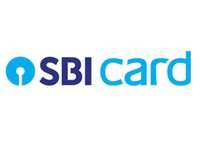What is Secured Credit Card?

A Secured Credit Card is considered a special kind of credit card. With a normal credit card (or charge card), you borrow money to spend and then you pay it back. On the other hand, with a Secured Credit Card, a certain amount of money, called a deposit, is deposited into the card before it can be used. Charge card purchases are usually equal to the deposit, so if you want to have a charge card that's swiped $1000 in one go, you'll have to Deposit $1000 to the card in advance.
A secured credit card looks similar to a Prepaid Card in that it requires money to be deposited first. The big difference is that you have to pay back the money you spent every month when the bill comes out, similar to a credit card. Paying it off will incur interest. Whereas a pre-secured credit card is a card that spends as much as you deposit, there will be no question of interest. The difference between a secured credit card and a credit card is, of course, that one has a deposit and the other doesn't. In addition, if you don't pay back the money you owe to the credit card, the bank can only find you through the collection. In addition, if you do not pay back the money you owe to the credit card, the bank can only ask you for the money through the collection; if you owe the money to the credit card, the bank can only ask you for the money through the collection. If the money on the security card is not paid back, the bank will simply deduct it from your deposit.
From a credit history standpoint, a secured credit card, like a credit card, is reported to all three credit bureaus for payment arrears. As a result, the repayment of a secured credit card also affects your credit score, with points going up if you pay on time and points deducted if you owe money. Prepaid cards, on the other hand, are not reported to the credit bureaus because they themselves are spending your own money, and there is no such thing as borrowing money to spend. As a result, charge cards are also often used by people with bad credit or no credit history to slowly build up or repair their credit history.
In short, you could say that a secured credit card is a product between a credit card and a prepaid card.
Application and use of the secured credit card
From an application standpoint, applying for a prepaid card generally does not require a Hard Pull, whether a secured credit card is Hardpull or not Depending on whether the bank requires it or not, credit cards usually have a Hardpull credit report. A SSN is usually required to apply for a secured credit card online, but may not be required if you go to a bank. Some secured credit cards require you to have a bank account (checking or saving) to apply for a card.
In terms of the difficulty of application, it is between prepaid card and credit card. Due to the inherent security of the deposit, a secured credit card is not as important to your income.
The general process is as follows.
Apply for a secured credit card: applying for a secured credit card is similar to applying for a credit card, online, over the phone, or in person. The bank may call your credit report to check if you are eligible to apply for a secured credit card.
Deposit: Usually, when you apply for a secured credit card, you can provide your bank account number and The routing number, after the application is approved, will automatically pull money from your bank card. If you don't have that much money in your card, it is very likely that your card application will be rejected.
Receive the card: Usually, the bank will wait until your deposit is received before sending you the card. Once you receive the card and activate it, you will be able to use it, and the limit is usually equal to your deposit amount.
Use: Swipe your card every month and pay back the amount you are billed or pay it back early. If you don't feel the amount is enough, some cards can be increased by putting down more of a deposit. Remember to pay it back or your interest will be deducted.
Upgrade: A secured credit card can be upgraded to a regular credit card after a long time, and many banks offer this feature. After upgrading, the deposit will be refunded automatically. Different banks have different assessment periods and will decide whether to give you an upgrade based on your usage.






